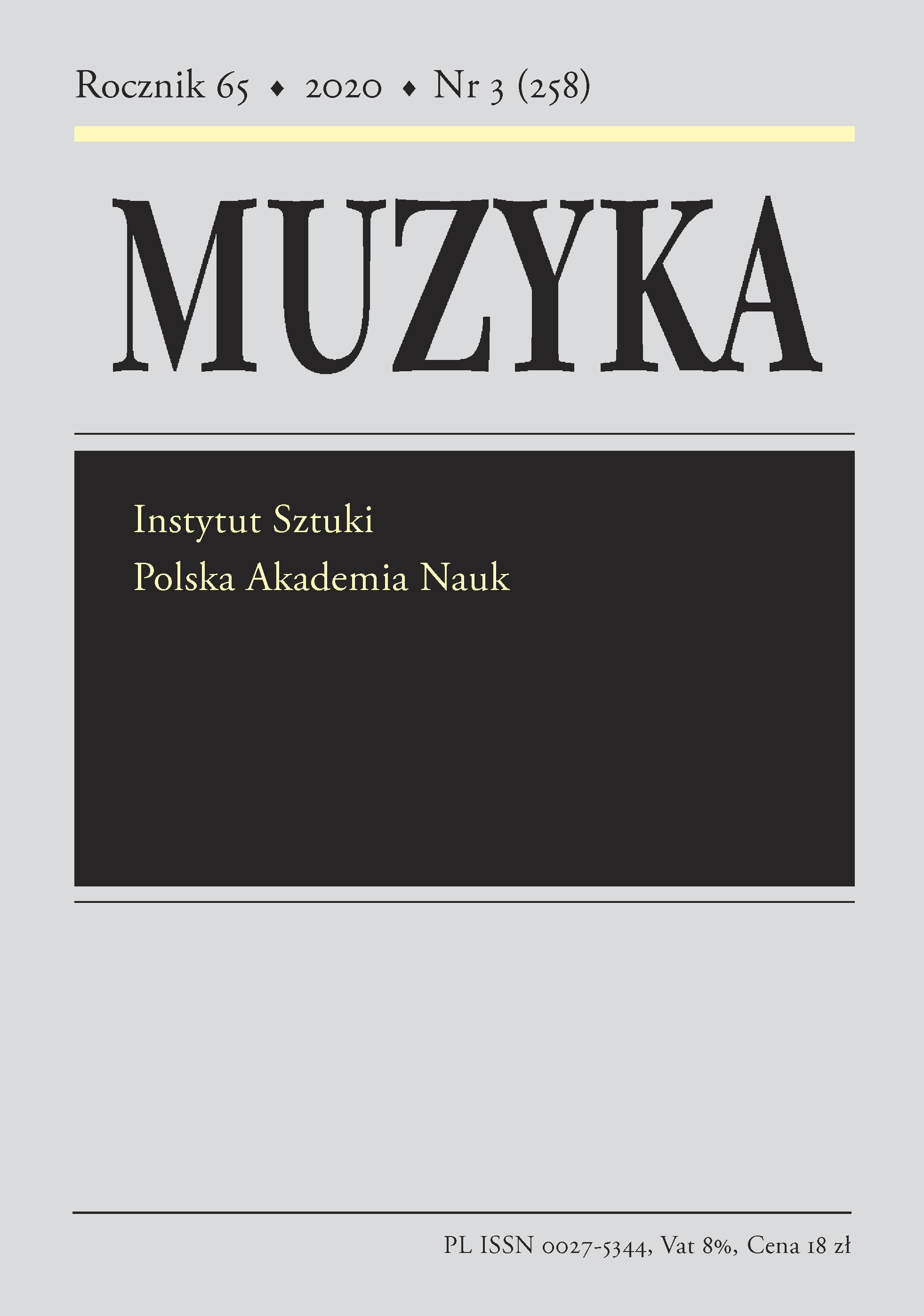Fenomen „bułgarskich głosów” – od archaicznej diafonii do współczesnej chóralistyki
The Phenomenon of ‘Bulgarian Voices’: From Archaic Diaphony to Contemporary Choral Singing
Author(s): Weronika Grozdew-KołacińskaSubject(s): Music
Published by: Instytut Sztuki Polskiej Akademii Nauk
Keywords: Bulgarian voices; Bulgarian polyphony; Bulgarian choirs; Bulgarian traditional singing; obrabotka
Summary/Abstract: Bulgarian polyphony is commonly associated with female choirs which perform pieces by Bulgarian composers of the 1950s to 1980s inspired by folksongs. Their original performance style, making use of traditional folk vocal production techniques, has contributed to perceiving these choirs and their repertoires as representative of contemporary Bulgarian music folklore. My paper is an attempt to discuss the ideas and socio-cultural processes which have resulted in the worldwide popularity of the ‘Bulgarian voices’ and in the emergence of a characteristic genre of music composition known as “obrabotka”. These processes seem to have had three sources: 1. the presence of archaic polyphonic forms in Bulgaria; 2. a social and artistic movement focused on choral singing and Western-European-style polyphony (developing on the rising tide of national liberation ideology and of a ‘return to Europe’); 3. sacred music, as represented by both its oldest and reformed genres.In my paper I characterise all the forms and manifestations of traditional Bulgarian polyphony, the specific scope of their use, and the main stages in research done on this subject so far. I have discussed the qualities and elements typical of those forms of polyphonic singing, which are frequently relicts of early practice. Not only do those forms decide about the unique character of traditional polyphony in Bulgaria, but they were also important as the material and inspiration for postwar choral writing in that country. I analyse the historical-social contexts of the choral movement, and the birth of modern Bulgarian music, which drew, first and foremost, on very well-preserved strata of highly varied folk music (the only form of Bulgarian music allowed to develop under the Ottoman rule in the Balkans), as well as on Old Bulgarian Orthodox Church music, while at the same time taking advantage of the achievements of European composition techniques, which Bulgarian composers could learn by attending foreign music conservatories as well as primary and secondary schools run in the Bulgarian territories by Catholic missionaries. I also note the Polish traces in Bulgarian music life, and present the most characteristic qualities of the morphology and sound of choral music by selected Bulgarian composers of the 1st and 2nd generations, demonstrating the evolution of thinking about the folk component, which was a source of their artistic inspiration.
Journal: Muzyka
- Issue Year: 65/2020
- Issue No: 3
- Page Range: 122-149
- Page Count: 28
- Language: Polish

